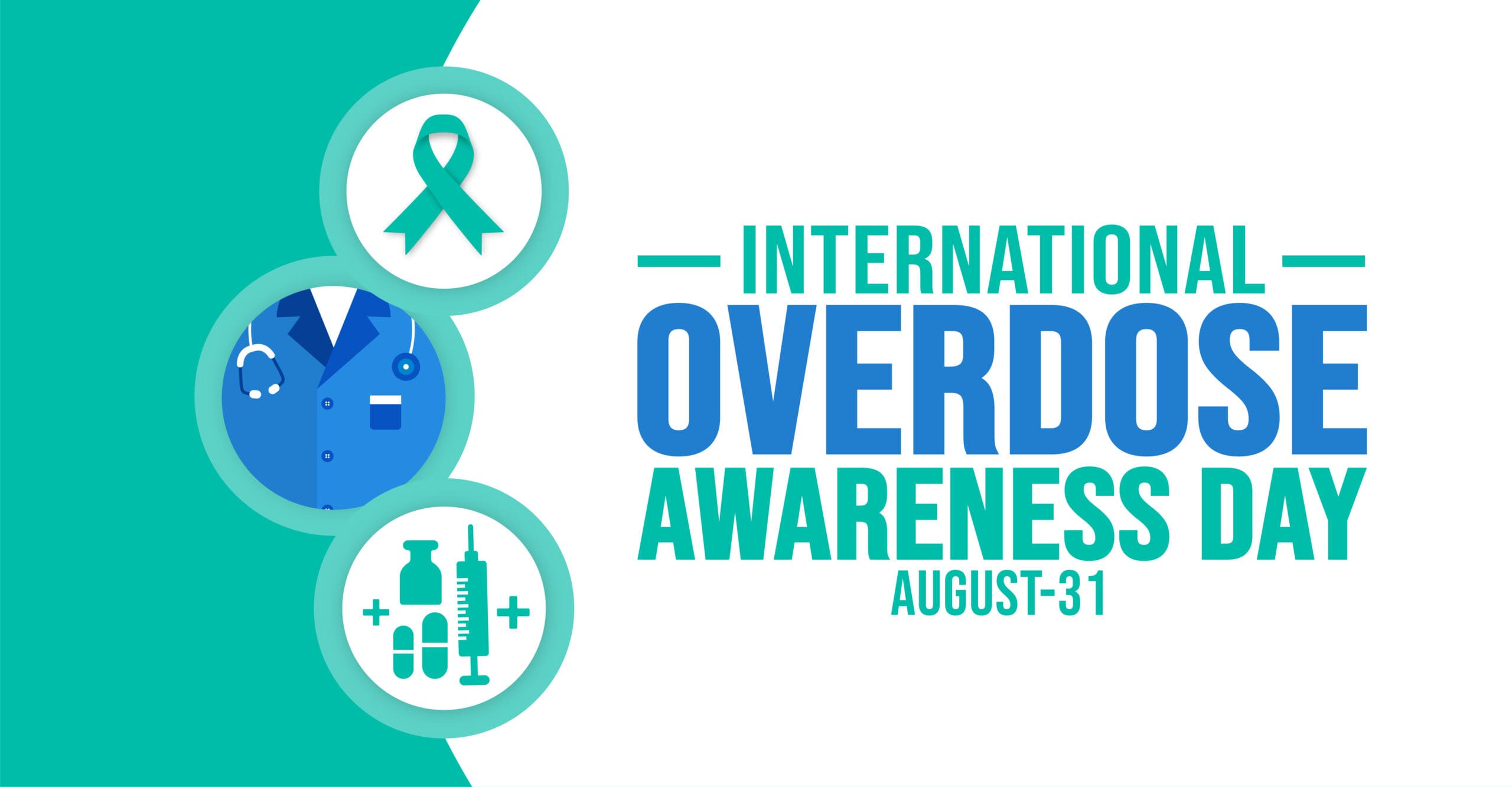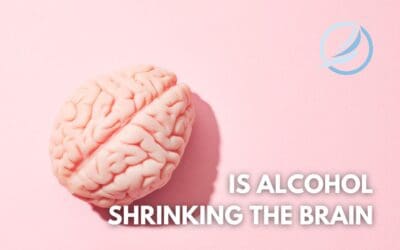Every year on August 31, people around the world come together to observe Overdose Awareness Day. This day serves as a solemn reminder of the devastating impact that drug overdoses can have on individuals, their friends, families, and loved ones, and communities as a whole. It’s a time to raise awareness about overdose risks, recognize the signs of an overdose, and learn how to respond effectively to save lives.
If you or a loved one has been affected by an overdose, or you are looking for ways to get involved in promoting overdose awareness, The Freedom Center in Gaithersburg, Maryland can help.
Understanding Overdose
A major reason for promoting overdose awareness not just in August, but year-round is to help people understand what the concept of an overdose is. Many people have a misconception that an overdose means death. While an overdose can result in someone dying, that isn’t always the case.
Being able to properly identify if someone is experiencing an overdose and acting quickly can help not only save the person’s life but also prevent major medical issues from occurring.
What Is An Overdose?
An overdose occurs when an individual consumes more of a substance than their body can handle. This can lead to a toxic level of the substance in the bloodstream, overwhelming the body’s natural processes of processing the substance.
Overdoses can occur with various substances, including prescription medications, illicit drugs, alcohol, and even certain household items.
In recent years, overdose cases have risen as a result of street drugs being “cut” with other dangerous substances such as fentanyl. The user is often unaware of the additives and takes what they think is a normal amount. However, due to the cutting agent, the dose is much stronger and oftentimes leads to an overdose.
Signs and Symptoms Of An Overdose
Recognizing the signs of an overdose is crucial for timely intervention. While overdose symptoms can vary depending on the substance, there are some common signs to be on the lookout for including:
- Unresponsiveness – The person is unresponsive, won’t wake up, or can’t be awakened.
- Shallow or labored breathing – Breathing may be slow, irregular, or even completely stopped.
- Blue or pale skin and lips – This is a clear indication of poor oxygen circulation.
- Vomiting or gurgling noises – The person may vomit or make gurgling sounds due to their impaired state (It’s important to note that if a person is lying on their back when making these noises it is imperative to either get them to stand or sit or roll them on their side to prevent chocking).
- Confusion or delirium – They may be disoriented, confused, or incoherent.
- Seizures – Seizures can be a sign of overdose, particularly with certain substances.
Causes of An Overdose
While many people may associate overdose with taking too much of a substance, that is only one of the many circumstances that can lead to an overdose. Some of the most common causes of an overdose are as follows:
- Incorrect Dosage: Taking too much medicine by accident or misunderstanding the directions might result in an overdose. This can occur with both prescription and over-the-counter treatments.
- Substance Abuse: Taking huge amounts of drugs or alcohol intentionally to produce a stronger impact or to cope with emotional or psychological concerns might end in an overdose.
- Substance Interactions: Combining various medicines, such as opioids and benzodiazepines, or combining drugs with alcohol, can result in harmful interactions that raise the chance of an overdose.
- Tolerance: The body can develop a tolerance to some chemicals over time, needing greater dosages to get the intended effect. If not carefully controlled, this increasing dosage might lead to overdose.
- Contaminated compounds: Illicit drugs may be contaminated with hazardous compounds, causing dosage to be unpredictable and raising the risk of overdose.
- Lack of Awareness: Some people may be ignorant of the potency or power of the substances they use, leading them to unwittingly consume harmful amounts.
- Underlying Medical disorders: Certain medical disorders can make people more susceptible to the effects of drugs, increasing their risk of overdose. People suffering from mental health issues may be at a higher risk of overdosing, especially if they take drugs to cope with their emotions or discomfort.
- Polysubstance abuse: Using numerous drugs at the same time can result in complicated interactions that heighten the effects and increase the danger of overdose.
- Suicidal Ideation: In some cases, individuals may intentionally try, and induce an overdose or threaten as a means of self-harm or suicide.
Dosage Miscalculation
A dosage miscalculation occurs when a person incorrectly measures a dose of a substance or underestimates a substance’s potency. As we discussed earlier, this particular cause of an overdose has become more common, especially with the introduction of fentanyl to street drugs, namely opioids, as a cutting agent.
A person may think they are taking a “pure” substance, meaning there are no additives or cutting agents in it. If they are unaware that there is an additive in the substance they are taking they may take their normal dose. However, what they are taking is significantly stronger than what they are used to which can send their body into a shock and cause an overdose.
Mixing Substances
Anyone who has ever gotten a prescription filled at a pharmacy knows that often warnings are telling you not to mix that drug with other drugs or alcohol. While some people may ignore those warnings, there is a reason they exist.
Mixing substances can greatly increase the risk of an overdose because doing so can overload the body’s internal systems and make it more difficult for the body to process the substances.
Changes in Tolerance Levels
Individuals who have developed tolerance may inadvertently consume larger amounts to achieve the same effects, putting them at risk. On the flip side of that, for someone who may be experiencing a relapse or someone who has dropped their dosage level, taking a high dose of a substance can also increase the risk of an overdose.
Lack of Awareness
If someone is unaware of what it is they are taking, or they don’t know how certain substances and/or dosage amounts can affect the body, they may find themselves taking a potentially lethal amount of a substance without even realizing it. Doing this can greatly increase the chances of an overdose.
Using Alone
If a person does have an adverse reaction to a substance they are using, being alone can greatly increase the risk that the adverse reaction or even an overdose can become fatal since there is nobody there to help.
Recognizing Overdose by Substance
As we mentioned earlier, depending on the substances abused along with other factors, it can cause someone to experience different side effects. Not only is it important to be able to recognize common signs and symptoms of an overdose, but also important to identify withdrawal symptoms associated specifically with the substance being abused. Below are some overdose symptoms corresponding with the type of drug abused.
Opioids
- Pinpoint pupils
- Slow breathing
- Extreme drowsiness
- Unresponsiveness
- Slowed or stopped heart rate
- Vomiting
- Loff of consciousness
Stimulants
- Nausea
- Vomiting
- Chest pain
- Racing pulse
- Agitation
- Rapid heart rate
- Teeth grinding
- Foaming at the mouth
- Sweating
- Extreme paranoia
- Seizures
- Stroke
Benzos
- Slurred speech
- Slowed heart rate
- Confusion
- Impaired coordination
- Coma
Alcohol
- Confusion
- Fading in and out of consciousness
- Seizures
- Lack of responsiveness
- Vomiting
- Slowed or irregular breathing
- Slowed heart rate
- Low body temperature
- Pale or blue-tinged, clammy skin
The Increasing Threat of Fentanyl
Despite seeing a significant decrease in opioid prescriptions, counterfeit narcotics are invading our communities and becoming a major threat. Drug traffickers create pills that look nearly identical to Adderall, Oxycodone, and Xanax. All medications that are commonly abused.
The Drug Enforcement Administration (DEA) warns that these counterfeit tablets may contain fatal doses of fentanyl, heroin, or methamphetamine. An unsuspecting user can be killed by just two grams of fentanyl. Recovery is a possibility, and if we all work together, we can drastically reduce the number of opioid overdoses and overdose-related fatalities in the United States and around the world.
How Often Do Overdoses Occur?
Unfortunately, throughout the United States and even worldwide, overdoses are becoming more and more common. In 2021 alone, more than 100,000 people died in the U.S. from an overdose, with an overwhelming majority of those deaths being the result of a synthetic opioid overdose according to the Centers for Disease Control and Prevention (CDC).
In Maryland specifically, while the number of overdose deaths is still high, the state has slowly seen numbers decrease since the start of the COVID-19 pandemic in 2020. According to the Maryland Overdose Data Dashboard, while overdose deaths went up almost 18% in 2020, in 2022 that number went down by almost 9%.
What to Do When Someone Overdoses: Tips
If you suspect that someone is experiencing an overdose, immediate action is crucial to prevent not just death but the possibility of the development of major medical issues.
Below are the steps you should follow when you think or know someone is overdosing:
- Call 911 immediately.
- Administer Narcan (Naloxone) if applicable (it’s important to remember that Narcan is only effective in reversing an overdose with opioids).
- If the person is not breathing, perform rescue breathing.
- If they are breathing and conscious do your best to keep them conscious.
- If they are breathing but unconscious, turn them on their side if they vomit so they don’t asphyxiate or choke.
- Remain with the person until first responders or emergency services arrive.
Overdose Prevention
While the simplest way to prevent an overdose is to avoid taking potentially harmful substances, sometimes that is easier said than done. Even when it comes to household items and prescription medications, there may be a risk of an overdose. Knowing things that you or a loved one can do to actively prevent an overdose can help greatly lower the risk of a potentially fatal incident. Below are some things you can do to help prevent an overdose from occurring:
- Education – Educate yourself and others about the risks of substances, potential interactions, and overdose symptoms.
- Safe Storage – Keep medications and substances out of reach of children and individuals at risk of misuse
- Regularly Review Prescriptions – If you’re on prescription medications, regularly review your doses and potential interactions with your healthcare provider
- Avoid Mixing Substances – Combining substances, especially alcohol, and drugs, can increase the risk of overdose
Addiction Treatments for Overdose Prevention
When someone is treated for an overdose, the doctor will frequently offer drug abuse therapy. There are several treatment alternatives available to address people’s addictions and personal needs. Our overdose prevention methods include:
- Residential Treatment Program
- Outpatient Treatment Program
- Intensive Outpatient Program (IOP)
- Partial Hospitalization Program (PHP)
Many treatment facilities also provide dual diagnosis therapy. When a person has both an addiction and a mental health issue, they have a dual diagnosis.
Alternative Drug and Alcohol Addiction Treatment
Individual therapy is at the heart of any effective treatment program. It can assist people in getting to the base of their addiction and starting to heal. During therapy sessions, therapists usually discuss issues such as:
- Childhood memories
- Current events
- Interpersonal interactions
- The dynamics of the family
- Self-esteem
- Coping mechanisms
It’s essential to prioritize the person’s safety and well-being, and seeking professional medical help is crucial in the event of an overdose. Talk to your healthcare providers to see which level of care is right for you.
Ways to Participate in International Overdose Awareness Day
There are various ways people can help keep the dialogue surrounding drug abuse and overdose alive and ongoing. Participation in International Overdose Awareness Day can include:
- Encourage people to wear purple on August 31st (the official color of addiction recovery and International Overdose Awareness).
- Distributing educational materials and local addiction resources where you live and work.
- Sharing flyers and/or images with useful information on social media with people in your neighborhood.
- Invite speakers and local government representatives to a rally in your community.
- Try to have an honest and open conversation with your friends or family about overdose and how to prevent it from happening.
Working Together to Combat the Overdose Crisis This Overdose Awareness Day at The Freedom Center
As we get ready to observe Overdose Awareness Day on August 31, it is important to remember that, while having a day of awareness is important, overdose is a 365-day-a-year issue.
At The Freedom Center in Maryland, we understand that overdose is a major issue plaguing our country as a whole. That’s why, in addition to our number of different addiction treatment services, we offer educational programs regarding relapse prevention, mental health, and overdose awareness.
We ensure that everyone who comes to us goes on to live a happy and healthy life. If you or a loved one are suffering from a substance use disorder, contact us today.


































